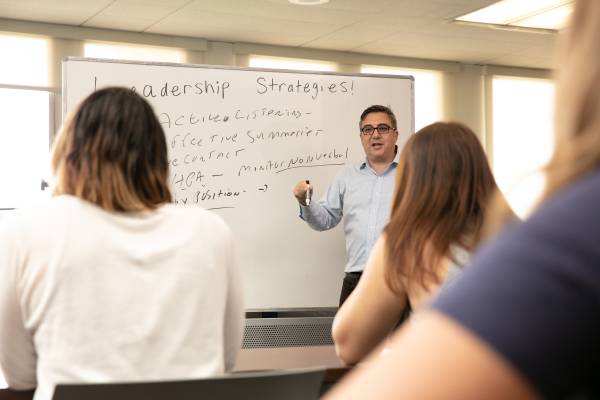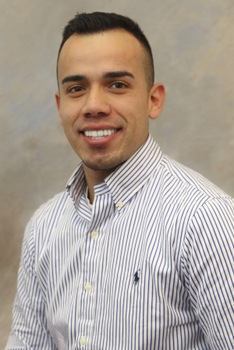Higher Education Leadership
Ph.D. Program

Fall 2023 Cohort Applications
Download a PDF version of the Q&A here.
A Ph.D. cohort in Higher Education Leadership is forming for community college, state college, college and university faculty and staff.
Some courses will be available for Summer 2023 enrollment as an option.
Florida Atlantic University is forming a new Ph.D. cohort in Educational Leadership: Higher Education. This program serves individuals preparing for or serving in leadership positions in community colleges, state colleges, colleges and universities. The curriculum is designed for higher education instructional leaders (faculty) and administrative leaders seeking a Ph.D.
Information Sessions will be held via Zoom* as follows:
- Thursday, March 30 at noon*
- Friday, March 31 at 3 PM*
- Wednesday, April 19 at noon*
- Thursday, April 27 at noon in person or via Zoom*
- Monday, May 1 at noon*
To register for one of the information sessions complete the following form:
https://docs.google.com/forms/d/e/1FAIpQLScBh5zIWDqN1h_7uOCtvjeuYhvj2rFO0fMigRcd1Bei1ATRZQ/viewform?usp=sf_link
*Zoom link to the informational session will be shared with registered participants.
Location for the in person session Thursday, April 27 at noon in person
* A. Hugh Adams Central Campus - 3501 Davie Rd. Davie, FL 33314
Building 3, room 117
Overview of the Program
The Ph.D. program courses are offered in a synchronous format via Zoom on weekends and evenings.
A master’s degree is required for admission. Students who do not have a higher education (or related) master's degree will have an opportunity to earn another master’s degree (M.Ed.) along the way to the Ph.D. without taking additional courses required for the Ph.D.
Required courses taken as a non-degree student (or transferred in) may be brought into the Ph.D. degree program after admission.
The curriculum for the Ph.D. includes courses in leadership and research foundations, higher education, electives, independent study, experiential, and dissertation research.
The Ph.D. in Higher Education course requirements link is here.
This link highlights some of our Ph.D. in Higher Education alumni is here.
Courses will be taught by full-time, graduate and affiliate faculty. Dissertation committees may include external faculty who are experts in the field. Learn more about our faculty.
Frequently Asked Questions About the Doctoral Program in Higher Education
- 1. Where and when is the program offered?
- The cohort will begin Fall 2023. Classes will be available in Zoom synchronous formats, with a few courses fully online. Classes with live lectures and discussions will be offered on a planned rotation during weekday evenings and Saturdays (executive fast-track).
- 2. How will I know what courses to take and if prior master’s courses will count toward the Ph.D. degree?
- Each student will receive a personalized review of their prior course work and advice from the Ph.D. faculty. Students will enroll as a cohort in a seminar class the first semester, where they will learn about how to be successful in the program, and finalize their degree plan of study. Click here for the Ph.D. degree requirements.
- 3. What is the cost of the program?
-
Tuition and Fees. Florida resident students pay resident tuition and fees.
Additional expenses may be incurred individually, usually related to dissertation research and conference travel.
Financial Aid Availability. Financial aid may be available. Graduate students are generally eligible for Unsubsidized Direct Loans. For graduate students, Unsubsidized Direct Loans have an annual limit of $20,500. To apply, visit FAFSA (Free Application for Federal Student Aid) and add FAU’s school code (001481).
Graduate students may also be eligible for FAU Graduate Grant. These funds are limited and offered on a first-come, first-served basis, so be sure to complete your FAFSA early (before our January 1st priority deadline or by March 1st, the 2nd priority deadline).
Additionally, graduate students may be eligible for tuition waivers, federal work study, scholarships, and fellowships.
Click here for more information about financial aid.
Employee Tuition Assistance. Many colleges and universities provide tuition reimbursement or waiver programs for their employees. Check with your college or university Human Resource Office regarding the availability of funds for your Ph.D. studies.
- 4. How do I apply?
-
Applications will be accepted through June 1, 2023. Early applications are encouraged as faculty will review completed applications March-June 1, 2023. Please allow several weeks to ensure you have the completed application and documentation, including official transcripts, a personal statement, a resume, and three letters of recommendation. No GRE scores are required.
Personalized interviews will be scheduled with the faculty. The final date for interviews is June 7, so please ensure your application is complete by May 2023. Interviews will be held on March 30, April 12, May 10, and June 7, 2023.
Complete information and instructions can be found on the website (www.leadership.fau.edu). On the left column menu, select EDL Dept and then choose Admissions. Please note that some materials go to Graduate Admissions and some to the Department. If you need assistance with this process, contact Kathy DuBois at Kdubois@fau.edu or call 561-297-3550.
Additional admissions and application information is available here.
- 5. I want to begin taking classes now but have yet to be accepted. Do I have to wait?
-
You may enroll for classes as a non-degree student before being admitted to the Ph.D. program as long as you meet the university’s requirements for non-degree status and have earned a master's degree. In addition, appropriate non-degree courses may be brought into your degree program after you are admitted.
The FAU website provides information about dates for non-degree registration, course schedules, class location, and start dates. In addition, the Department website includes course descriptions (www.leadership.fau.edu).
If you are interested in enrolling before admission, please email Dr. Deborah L. Floyd, Professor and Ph.D. coordinator, at dfloyd@fau.edu. We recommend you not “self-advise” and seek guidance before enrolling.
- 6. How long will it take to complete the program if I attend part-time?
-
It varies widely, depending on how many classes are taken per term. The coursework is usually 19 three-hour classes; we offer three terms per year. Our cohorts usually complete the coursework in 7 terms. The dissertation is 20 hours. If prerequisites are missing, more courses may be needed.
The average time for completion is around 4 years, but it can be less or more depending on the readiness of the student to successfully pursue the dissertation research requirement. Most cohort students complete the degree in 3.5 to 4.5 years. You will have up to 10 years to complete your Ph.D. Most students work full-time and graduate with their doctoral degrees in less than 7 years.
To apply for the program, please contact Kathy DuBois for assistance. Questions about the curriculum should be addressed to Dr. Deborah L. Floyd, Ph.D. Coordinator. Applications are accepted on line through the Graduate College.
Contact Information

Kathy DuBois
kdubois4@fau.edu
Program Assistant
Department of Educational Leadership & Research Methodology
College of Education
(T) 561.297.3550
Building (ED-47), Room 260
Boca Raton Campus

Dr. Deborah L. Floyd
dfloyd@fau.edu
Professor, Higher Education Leadership
Program Leader and Ph.D. Coordinator
Educational Leadership & Research Methodology
Editor-in-Chief, The Community College Journal of Research & Practice (CCJRP)

Dr. Cristobal Salinas Jr.
salinasc@fau.edu
Associate Professor, Higher Education Leadership
Undergraduate Minor Coordinator
Educational Leadership & Research Methodology
Editor of the Journal of Hispanic Higher Education